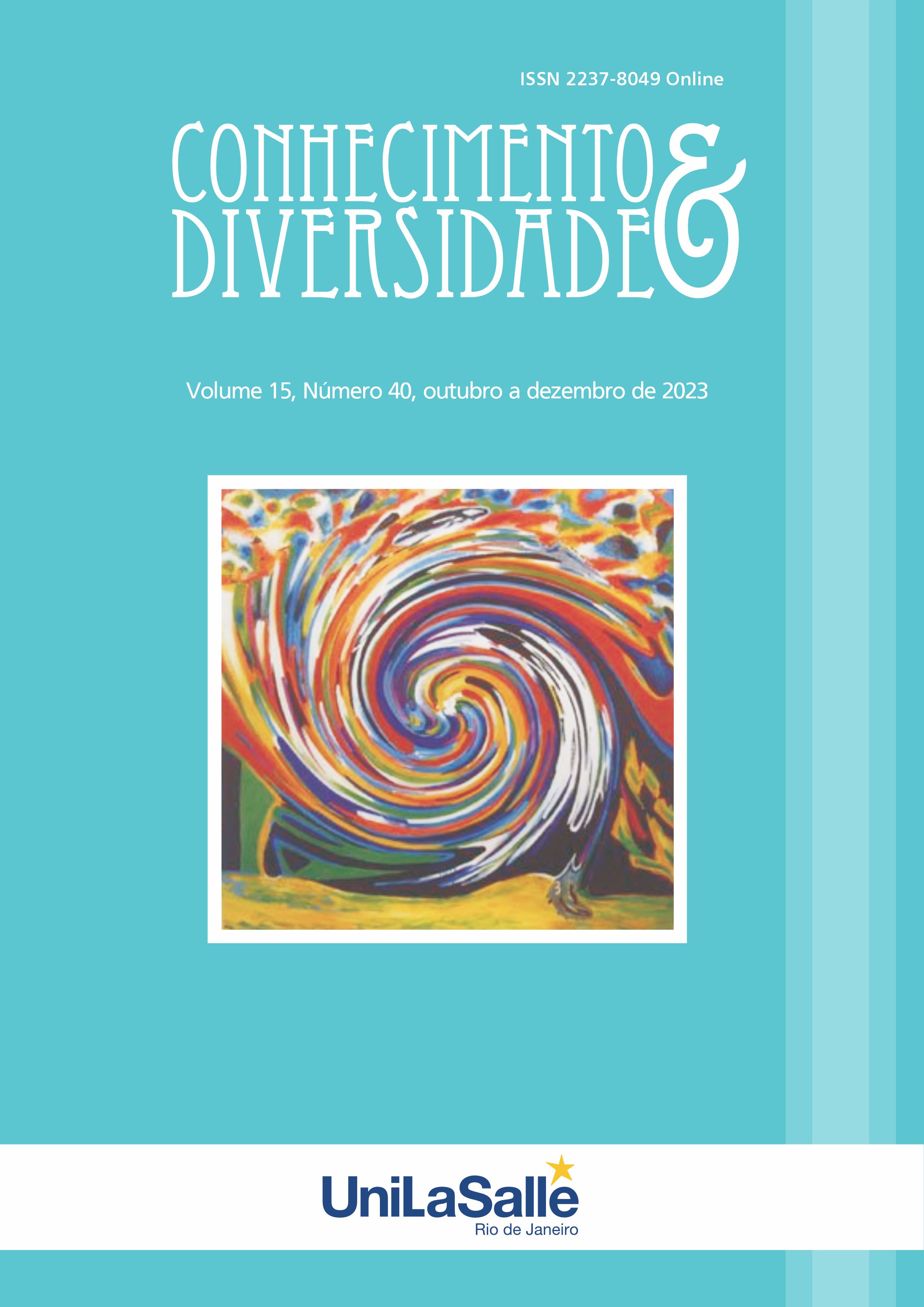LINGUO-COGNITIVE ANALYSIS OF A LITERARY TEXT
LINGUISTIC MEANS OF EXPRESSION OF CONCEPTS AND IMAGES
DOI:
https://doi.org/10.18316/rcd.v15i40.11253Keywords:
Artistic text, Cognitive linguistics, Concept, Image, Linguistic means, Linguistic-cognitive analysisAbstract
The work is devoted to the study of the linguo-cognitive analysis of the literary text in the aspect of linguistic means of expressing concepts and images. The relevance of this article is due to the growing attention to the analysis of the literary text using the methods and techniques of cognitive linguistics. The main aspects of cognitive linguistics, lingua-cognitive analysis, and text as an object of cognitive linguistics research are widely covered in the work. The main features of the literary text, its components, and lingua-cognitive analysis of linguistic means of expressing concepts and images are defined. The purpose of the research is to reveal the lingo-cognitive analysis of the literary text in the aspect of linguistic means of expressing concepts and images. The object of research is a literary text as material for lingua-cognitive research. Research methods. Such research methods such as description, analysis and synthesis, comparison, generalization, cognitive analysis, linguistic analysis, and modelling were used in the work. The article reveals the lingua-cognitive analysis of the literary text in terms of linguistic means of expressing concepts and images. The essence of the concept of “cognitive linguistics” and the main aspects of this phenomenon are characterized. The interpretation of the term “lingua-cognitive analysis” is defined. The essence of the “text” concept and the classification features of the text are described. The scientific work describes the features of the literary text. The components of the literary text influencing the lingua-cognitive analysis are characterized. Such elements of the literary text as image, concept, character, and evaluation are summarized.
References
Ahmed, S. (2021). The Language of Creativity: Validating Linguistic Analysis to Assess Creative Scientists and Artists. Front Psychol, 12, 72–82.
Alduais, A. (2022). Cognitive Linguistics: Analysis of Mapping Knowledge Domains. Intell, 10, 93–95.
Arkhipova, I. (2020). Methodology for the analysis of authorial indents in English literary prose works. Transcarpathian Philological Studies, 13, 7–12.
Betsenko, T. (2023). Analysis of the artistic text: lingvocultural approach. Opera in linguistica ukrainiana, 1, 247–253.
Bozhko, O. (2018). Linguistic representation of the atmosphere of suspense in English-language fiction works of the horror genre: a semantic-cognitive aspect. Kherson: Kherson State University, 380 p.
Chistyak, D. (2016). Research of the artistic concept in the linguopoetic perspective. Scientific bulletin of I. Franko State University, 5, 157–159,
Chrzanowska-Kluczewska, E. (2017). Language − Literature − the Arts: A Cognitive-Semiotic Interface. Krakow: Jagiellonian University, p. 326.
Csábi, S. (2018). Expressive Minds and Artistic Creations: Studies in Cognitive Poetics. Oxford: Oxford University Press, p. 97.
Freeman, M. (2009). Cognitive Linguistic Approaches to Literary Studies: State of the Art in Cognitive Poetics. The Oxford Handbook of Cognitive Linguistic, 1, 1175–1202.
Ghani, A. (2016). A Cognitive Stylistic study of poetic discourse. Al-Ustath, 2, 17–34.
Golikova, N. (2019). Artistic discourse of P. A. Zagrebelny: linguistic-cognitive and pragmatic aspects. Kyiv: Institute of the Ukrainian Language of the National Academy of Sciences of Ukraine, 530 p.
Hart, C. (2019). Cognitive Linguistic Approaches to Text and Discourse: From Poetics to Politics. Edinburgh: Edinburgh University Press, p. 206.
Honcharuk, O. (2014). Methodology of linguistic-cognitive analysis of an English-language prose fable. Scientific notes of the National University “Ostroh Academy”, 42, 47–50.
Ibáñez, F. (2010). Review of Cognitive Linguistics. Spanish Cognitive Linguistics Association, 8, 203-209.
Jurin, S. (2017). Texts and Their Usage Through Text Linguistic and Cognitive Linguistic Analysis. Rijeka: Faculty of Humanities and Social Sciences, p. 151.
Kupchyshina, Yu. (2021). Linguistic operations as a cognitive basis for the formation of the tragic in artistic prose works. Actual problems of philology and translation studies, 22, 72–75.
Movchan, M. (2015). Linguistic analysis of artistic text. Actual problems of philology and translation studies, 9, 121–125.
Petrenko, L. (2020). Concept concept and conceptual analysis of artistic text. Science and Education a New Dimension, 216, 49–52.
Petrova, O. (2016). Linguistic analysis of specific branch terminological systems. Materials of the XXVI International scientific and practical Internet conference “Problems and prospects of the development of science at the beginning of the third millennium in the countries of Europe and Asia”, 1, 298–300.
Semino, E. (2023). Cognitive stylistics: language and cognition in text analysis. Linguistic approaches to literature, 3, 23–47.
Shtyrlina, E. (2020). Artistic Concept: Approaches and Directions of its Study in Linguistics. Utopía y Praxis Latinoamericana, 25, 15–20.
Skaliky, S. (2018). Beyond Liter ond Literal Meaning: Linguistic аnd Cognitiv al Meaning: Linguistic аnd Cognitive Features оf Figurative Language Processing and Production. Atlanta: Georgia State University, p. 285.
Tairova, F. (2020). Cognitive Principles of Information Coverage in Literary Texts in English and Uzbek. International Journal of Social Science аnd Human Research, 4, 2985–2987.
Tatsakovich, U. (2018). Intertextuality in the linguistic-cognitive dimension. Scientific Bulletin of the International Humanitarian University, 35, 94–97.
Temirova, F. (2021). The Concept of Discourse Analysis in Linguistics Artistic Discourse and Discourse Analysis. IJMRA, 4, 1713–1716.
Downloads
Published
Issue
Section
License
Copyright (c) 2023 Natalia Myronova, Alla Poltoratska, Svitlana Romanchuk, Svitlana Bernatska, Dmytro Boklakh

This work is licensed under a Creative Commons Attribution 4.0 International License.
As recommended by the Public Knowledge Project, RCD adopts for its articles a CREATIVE COMMONS Attribution CC BY 4.0 license.
This license allows others to distribute, remix, adapt and build upon your work, even commercially, as long as they credit you for the original creation.
This is the most appropriate license offered.
Recommended for maximum dissemination and use of licensed materials.



